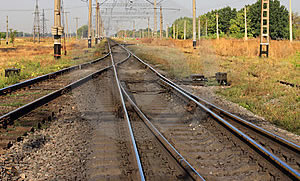Chitungwiza wants to take over railway project

line to the local authority, while Harare has said it can partner Government in improving the urban transport system.
The dire transport situation in Harare and Chitungwiza has also seen Government saying it will hire buses to ply longer distance routes while urban commuters could soon benefit from about 100 buses bought by Zupco last year.
Chitungwiza argues that construction delays are costing the local authority, which says it had planned “massive” housing estates along the rail corridor.
Commuters are at the mercy of public transporters who change commuter fares without notice.
There is presently no scheduled transport between Chitungwiza and Harare, which in years gone by was managed through the Local Government Ministry and municipalities.
Chitungwiza Town clerk Mr Godfrey Tanyanyiwa recently said the local authority had drawn a plan to lure investors to partner them in construction of the railway.
“The Mayor, Alderman Philimon Chipiyo, will present a paper at the Trade Fair to invite investors to partner Chitungwiza,” he said.
He said houses along the railway line’s path would be demolished with owners being compensated.
Mr Tanyanyiwa said Chitungwiza wanted to build institutional accommodation along the railway line.
The railway line is supposed to link Makoni Shopping Centre, the industrial sites, Zengeza and St Marys.
From St Mary’s, the line runs parallel to Seke Road and into Harare.
Chitungwiza has more than two million people with many of them commuting to Harare daily for work and personal business.
Government has taken a step back from the rail project and has not been actively seeking its completion for years now.
Transport, Communication and Infrastructure Development Secretary Mr Patson Mbiriri last week said businesspeople felt the project was not profitable.
“That railway line is not a major priority at the moment because there are no partners to help us to construct it.
“It is a programme that we wanted to do under the Public-Private Partnership Programme but there are no takers at the moment.
“Businesswise, the deal is not profitable and it will take time for a businessperson to recover his or her investment considering that a lot a people prefer to use commuter omnibuses rather than trains to get between Harare and Chitungwiza.”
Mr Mbiriri said the railway line would be completed once a serious partner was found.
In Harare, the collapse of Zupco has meant commuters have to rely on kombis; the dangers of which was seen recently when a marginal increase in fuel costs resulted in a doubling of public transport fares.
Zupco last year said it had bought 100 buses from Chinese firm FAW and indications are that these might finally arrive in coming weeks.
Local Government, Rural and Urban Development Minister Ignatius Chombo last week said Zupco was also looking at hiring at least 20 buses for use on long-distance routes.
The buses would be leased from manufacturers who would repair and service the buses.
“We are in the process of resuscitating Zupco. The buses should be here end of month.
“I have received a report from Zupco detailing the progress with shipment of the buses,” said Minister Chombo.
He said the buses would be shipped through Maputo and Beira.
“The Zupco officials are working on the logistics. We expect the first 45 buses this month with the remainder expected a month later,” he said.
Zupco has a five-year programme to purchase 500 buses to be bought in batches of 100.
Minister Chombo said to avoid errors of previous years where Zupco bought buses without back-up spares and qualified engineers to service them, it had been agreed that Chinese technicians would work from a Zupco depot in Harare.
The capital used to have a municipal transport system under the name Harare United.
However, the local authority has said it will not re-enter the sector in such a way.
Mayor Muchadeyi Masunda said, “There is a model that has always worked in this country.
“The local authority provides the termini and ancillary facilities with the Government providing a subsidy while the private sector provides the buses.”
Mr Masunda said the city was not interested in running a bus company because that was not its core service delivery area.
“The city is more than willing to play its traditional role of providing termini and ancillary facilities.
“It is my business as mayor to ensure that all our termini are sheltered,” he said.






Comments